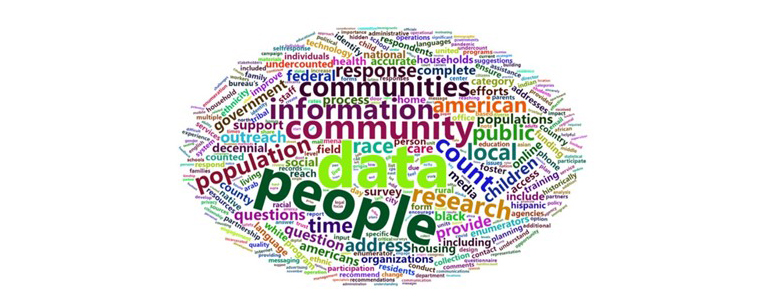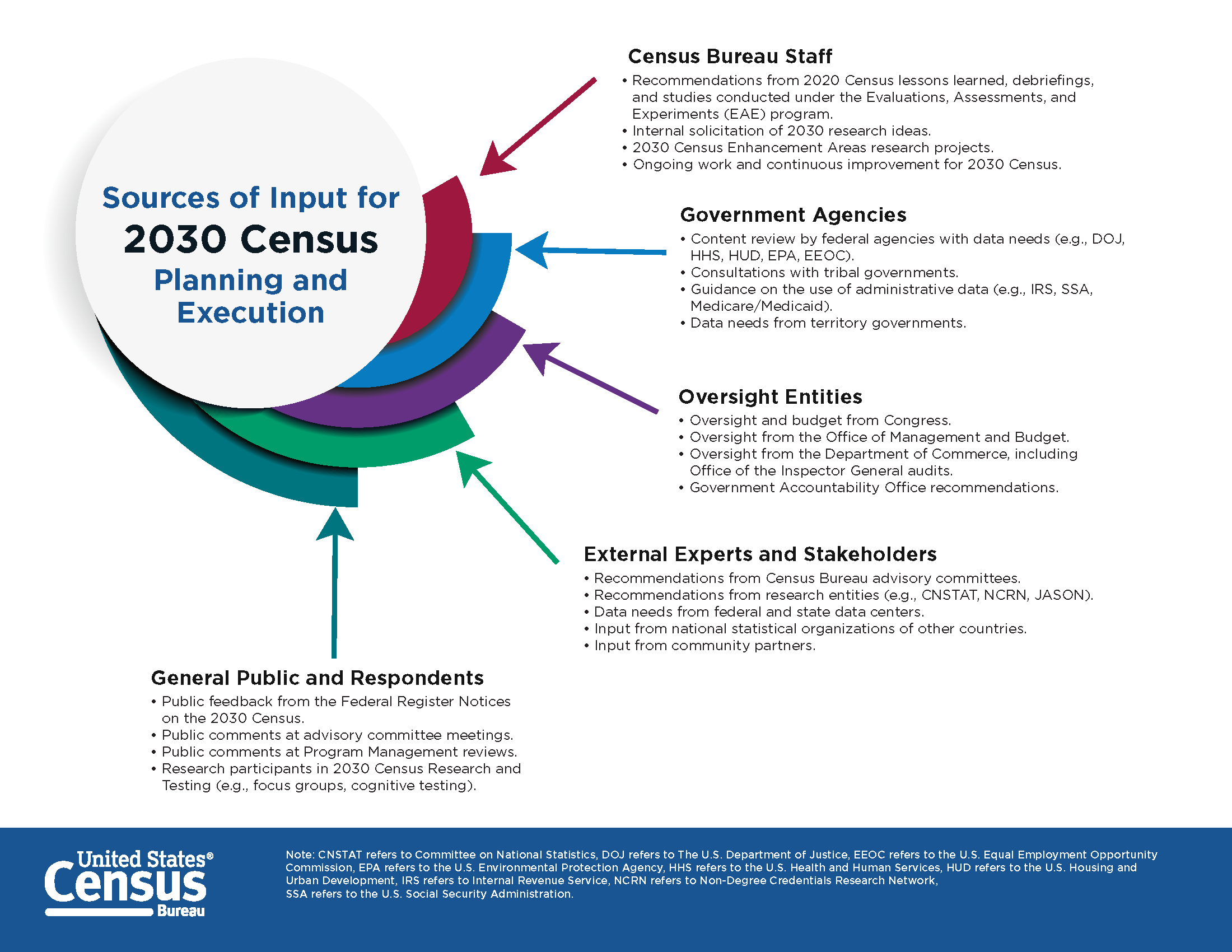Your 2030 Census Feedback Helps Our Nation. Thank you, and Here’s What’s Next.
Your 2030 Census Feedback Helps Our Nation. Thank you, and Here’s What’s Next.
Last fall, we eagerly announced that the U.S. Census Bureau actively sought your ideas for a better 2030 Census. This outreach represented an important part of our overall commitment to engaging with stakeholders, tribes, partners and communities. We hope outreach efforts like this help illustrate that we are living our values, which in this case include scientific integrity, inclusivity and transparency. This represented but one way that the voices of diverse constituencies and communities across our nation can be heard.
I am pleased to report that we received a tremendous response! Over 8,000 comments were registered from people across the country. The comments focused on advancing our upcoming 2030 Census operational plan, overall. There was also special attention to the enumeration of historically undercounted populations.
In our 2030 Census Federal Register Notice (FRN), we invited you to share feedback on five areas: reaching folks and motivating participation, leveraging technology, identifying new data sources, ways to contact respondents, and support services to facilitate completing the census form.
You fully embraced this opportunity and provided valuable feedback on various aspects of the census, even areas beyond the five we provided. The breadth of your contributions led us to expand the response areas by three. We added: questionnaire content, field operational management, and a miscellaneous category that assembles the remaining contributions whose topical counts were too few to warrant a single category.

This word cloud shows a collection of the words and ideas you shared in your comments.
Over two-thirds of the comments we received (about 70%) focused on one of three categories: questionnaire content, reaching everyone and motivating participation, and field operational management.
To give you a sense of the suggestions we received, here are some examples:
- Partner with programs that serve historically undercounted populations, school districts, adult literacy and adult basic education programs.
- Partner with schools and children’s TV shows to reach households with young children.
- Provide QR codes or an app to let people access the questionnaire or learn more about the census.
- Hire people from historically undercounted communities to conduct the census.
- Give funding to tribes and let them count their populations.
- Provide live agents to help respondents through chat applications and self-response stations.
- Use municipal data (like utility data, public school records, and local social services data).
Your comments covered a wide range of topics and gave us much to contemplate and incorporate. These comments will be released publicly tomorrow, and you’ll be able to see them for yourself, firsthand!
So, what’s next? Now that we’ve assembled the comments into topical areas, we are assessing, evaluating, and synthesizing them. Your feedback is being shared with Census Bureau experts for their processing and analysis. We’re also seeking feedback assessments from our esteemed federal advisory committees, specifically the Census Scientific Advisory Committee and the National Advisory Committee.
This spring and summer, our advisory committees will help us prioritize the suggestions we received. That will allow us to better integrate them into our 2030 Census research agenda as well as our 2030 operational design. Of course, we’ll continue to analyze this feedback through this summer and finalize the extent of their use in our research. And by this fall, we’ll release a report on how we are moving forward.
In the bigger picture, your feedback represents one of multiple sources of information and insight that are critical in developing the 2030 Census operational plan and finalizing our research portfolio. These other sources include: our extensive analyses of 2020 Census operational quality metrics; our 2020 Post Enumeration Survey and Demographic Analysis; independent 2020 Census quality assessments conducted by the National Academies and others; and ideas from our career staff and leadership. We will also be considering input from other government agencies, oversight and advisory bodies, external experts and stakeholders. Ultimately, a rigorous, robust 2030 Census operational plan will be developed from the knowledge base comprised of this large infusion of insights combined with upcoming research findings. We plan to release the operational plan at the end of 2024.

We’re still early in our journey to the 2030 Census. There is much research, testing and learning that lie ahead. But please know that the comments you submitted are critical to our planning and execution of the next census.
We want to thank you for putting so much thought and effort into your comments. For many of us at the Census Bureau, this harkens back to 2020, when we saw people and organizations come together to motivate and educate their communities about the census – and in many cases, continued working together on pandemic response, racial justice issues, and other community matters. It’s absolutely heartwarming.
As we endeavor to develop a superb 2030 Census, we very much need you to stay engaged with us and with each other. Our efforts and our nation are stronger when we work together towards the common goal of a complete and accurate census. Thank you to our colleagues, partners, and friends for responding to our Federal Register Notice on behalf of their communities.
Your input represents public service in its truest form. I look forward to sharing our findings and assessments later this year.



